Tuesday August-12 2025 11:21:42
The 4.75mm soil sieve is primarily used for particle grading analysis of bulk materials such as soil, sand, gravel, and aggregate. The core component of this sieve is a sieve mesh with a 4.75mm mesh size, typically made of durable materials such as stainless steel or brass to ensure stability and accuracy during use. Depending on the application requirements, the 4.75mm soil sieve can be used with manual or mechanical vibrating equipment for rapid material screening.
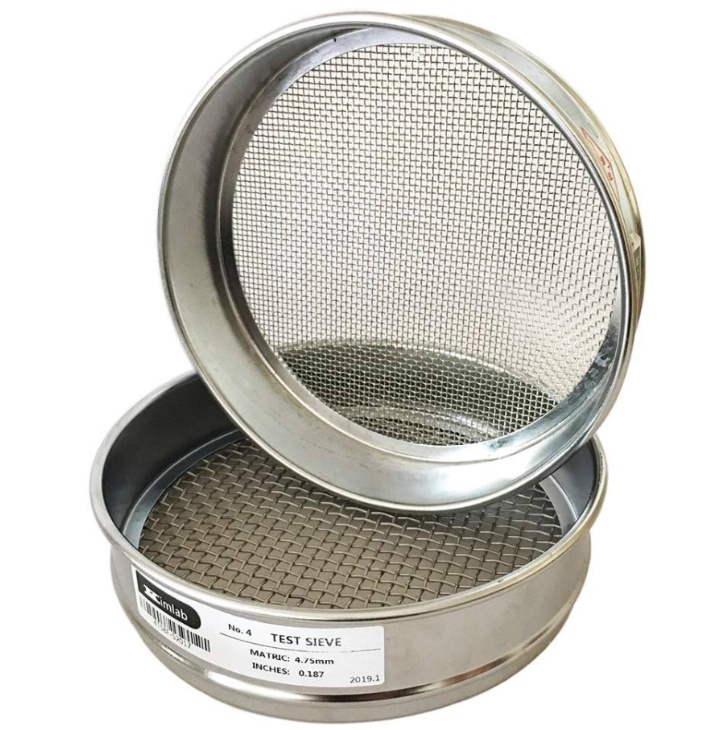
When conducting soil particle size analysis, the 4.75mm soil sieve is a crucial specification, often used to separate coarse-grained and fine-grained soils. Depending on the testing standard and usage environment, the mesh material and mesh type of the 4.75mm soil sieve vary. The mesh material of the soil sieve must be wear-resistant, corrosion-resistant, easy to clean, and stable over long-term use. Common materials include:
Stainless steel: This is the most common and commonly used mesh material. Stainless steel mesh offers excellent corrosion and wear resistance, effectively protecting it from moisture and chemicals in the soil. Furthermore, its smooth surface resists soil particles and makes cleaning easy, ensuring accurate test results.
Brass: Brass mesh is also used in certain standards and specialized applications. It also offers some corrosion and wear resistance, but its strength and durability are generally inferior to stainless steel.
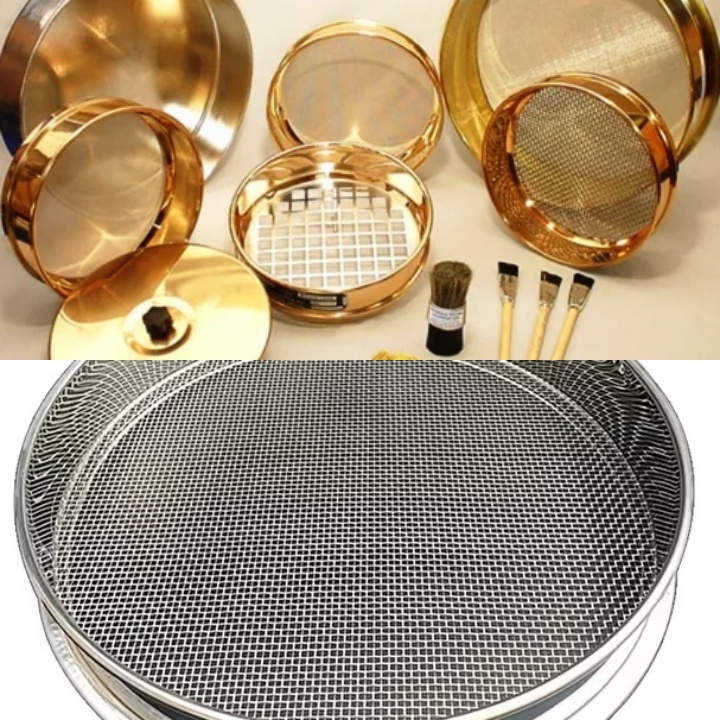
The mesh type directly impacts the accuracy and efficiency of screening results. 4.75mm soil sieves come in two main mesh types:
Square-hole sieve: This is the standard mesh type. The mesh size (i.e., the side length) of the square-hole sieve is precisely 4.75mm. This design provides the most accurate particle size classification and is suitable for most soil screening tests, such as particle grading tests in soil mechanics.
Circular-hole sieve: Circular-hole sieves are primarily used in certain industries or standards, such as mining and building materials. However, their application in soil particle size analysis is relatively limited. The sieve holes of a round hole sieve have a diameter of 4.75mm. Its sieving principle differs slightly from that of a square hole sieve, and the difference in hole shape also affects the permeability of soil particles.
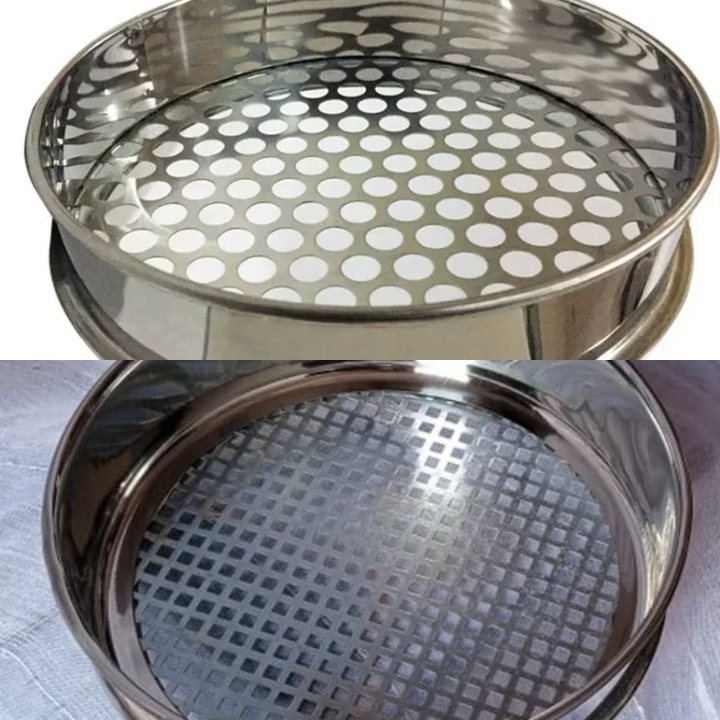
In soil engineering and geological exploration, the 4.75mm soil sieve is a very important tool because it plays a key role in particle size analysis. Its features and advantages are mainly reflected in the following aspects:
Clear particle size classification standard: 4.75mm is a sieve hole size with clear engineering significance. According to soil mechanics classification standards, this size is generally used as the dividing line between coarse-grained soils (larger than 4.75mm) and fine-grained soils (smaller than 4.75mm). The 4.75mm soil sieve can quickly determine whether the soil's primary composition is sand and gravel, silt, or clay, which is crucial for selecting appropriate construction methods (such as foundation treatment and fill compaction).
Precise Screening Performance: 4.75mm soil sieves typically utilize high-precision manufacturing processes to ensure uniform and accurate mesh size. The mesh is typically made of stainless steel or brass, offering excellent corrosion and wear resistance. This ensures that the mesh size does not change significantly over time, ensuring accurate test results. Accurate screening results are essential for particle size distribution analysis (also known as sieving tests). Using the 4.75mm soil sieve, the percentage of particles larger than this size in the soil can be precisely calculated, providing reliable data for developing grading curves and evaluating soil properties.
Diverse Applications: The 4.75mm soil sieve has a wide range of applications, not just in civil engineering. Its simple design and ease of operation allow it to be used with an electric sieve vibrator or manually, making it suitable for both laboratory and field environments.
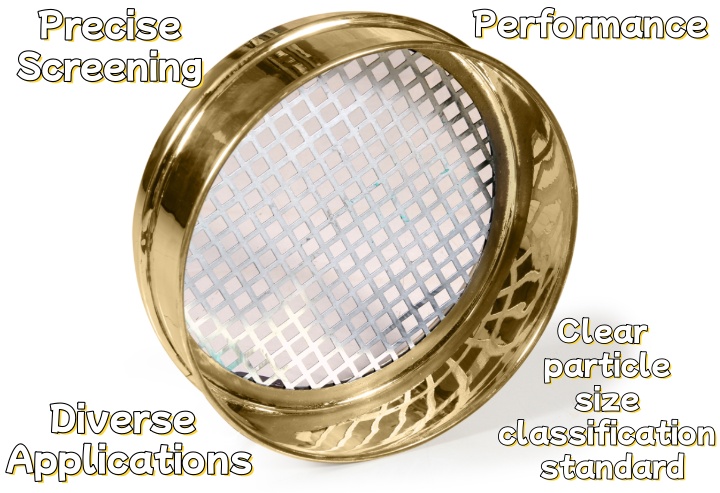
The 4.75mm soil sieve is primarily used for particle size distribution analysis, a fundamental test in civil engineering, geology, and construction. Its uses can be summarized as follows:
Separating coarse-grained and fine-grained soil: Coarse-grained soil refers to soil particles with a diameter greater than 4.75 mm, typically gravel and crushed stone. Fine-grained soil refers to soil particles with a diameter less than 4.75 mm, primarily including sand, silt, and clay. The primary function of a 4.75 mm soil sieve is to separate the coarse and fine fractions of a soil sample, laying the foundation for subsequent testing and analysis.
Conducting particle grading tests: Particle grading tests are an important method for determining soil particle size distribution. The 4.75 mm soil sieve is essential for this test. It is used in conjunction with a series of sieves of varying apertures (such as 2 mm and 0.075 mm). By screening each sieve, the percentage of particles of different sizes can be calculated. The mass of material passing and retained on the 4.75 mm soil sieve can be weighed to determine the soil particle content within that size range. Plotting the sieving results on a graph provides a visual representation of the soil particle distribution. Controlling the Quality of Building Materials: Sand is a crucial fine aggregate in concrete and mortar, and its particle size is typically required to be less than 4.75mm. The 4.75mm soil sieve can be used to detect excessive coarse impurities in the sand, thereby ensuring the strength and performance of the concrete. For coarse aggregates such as crushed stone and gravel, the 4.75mm soil sieve is used to detect the presence of fine particles (such as sand and silt), which is crucial for controlling the aggregate's mud content and gradation.
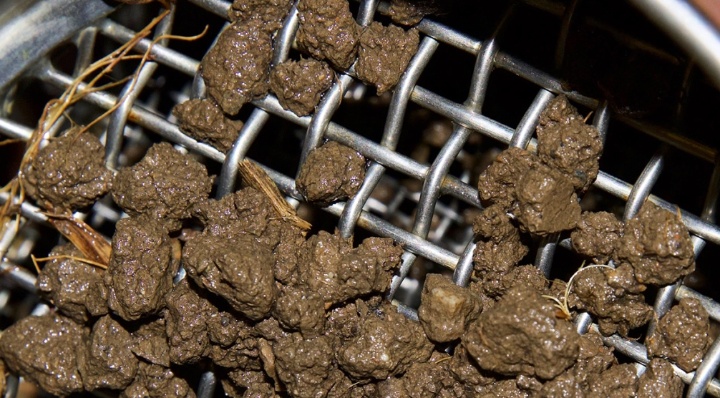
The 4.75mm soil sieve is primarily used for particle gradation analysis. This fundamental test has widespread and important applications in fields such as civil engineering, construction, and geological exploration. In civil engineering, the 4.75mm soil sieve is a key tool for distinguishing soil particle size, primarily for classifying soils. In soil mechanics, the 4.75mm soil sieve serves as a crucial dividing line between coarse-grained soils (such as gravel and crushed stone) and fine-grained soils (such as sand, silt, and clay). Using this sieve, engineers can initially determine the primary composition of the soil, providing a basis for engineering decisions such as foundation treatment and roadbed filling. The 4.75mm soil sieve is an essential tool for particle gradation testing. Used in combination with other sieves of varying apertures, it can accurately determine the percentage of particles of different sizes in the soil. This data forms the basis for developing a particle gradation curve, which visually reflects important engineering properties such as soil gradation quality, permeability, and compaction performance. Furthermore, the 4.75mm soil sieve plays an important role in the construction materials industry, primarily used to control the quality of sand and stone aggregates. Sand testing: In concrete and mortar mixes, sand, used as fine aggregate, is typically required to have a particle size of less than 4.75mm. The 4.75mm soil sieve can be used to quickly detect excessive coarse impurities in the sand, ensuring compliance with engineering specifications. For coarse aggregate testing, a 4.75mm soil sieve can be used to separate fine aggregates such as crushed stone and gravel to calculate key aggregate indicators such as mud content, thereby ensuring the strength and durability of concrete.
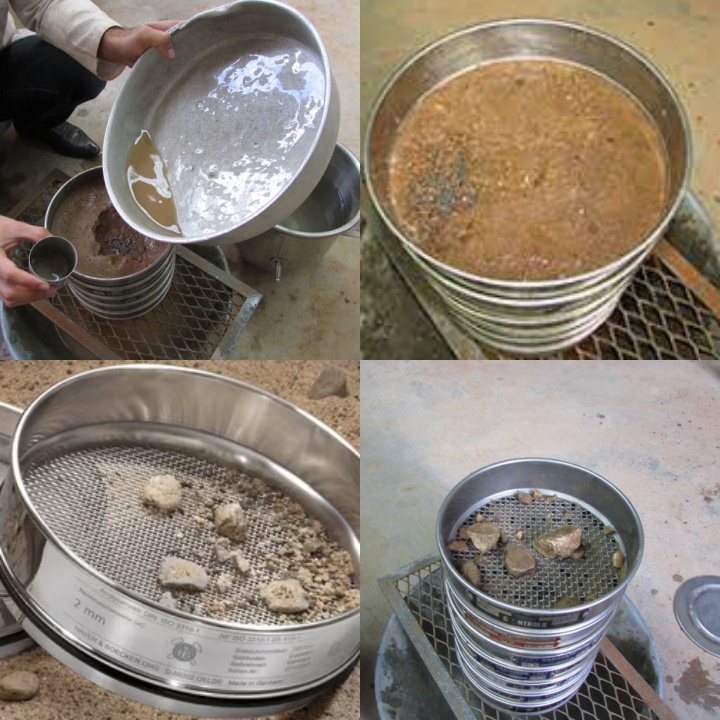
The 4.75mm soil sieve has several significant advantages in practical applications. It serves as an important criterion for distinguishing coarse-grained and fine-grained soils in soil mechanics, providing a basis for engineering judgment. The sieve is manufactured according to specific standards, and the precision and uniformity of the sieve aperture ensure the reliability of test results. The material is selected for durability and corrosion resistance, adapting to a variety of materials and environmental conditions. In daily use, the 4.75mm soil sieve can be combined with other sieves to form a complete screening system suitable for various particle grading tests.
Aug 12, 2025
What is 4.75mm soil sieve ? The 4.75mm soil sieve is primarily used for particle grading analysis of ...
Aug 09, 2025
What is 2mm soil sieve? A 2mm soil sieve is a fundamental and crucial tool. Its primarily used for pr...
Aug 04, 2025
Size sieve for soil mainly refers to the sieve frame diameter (commonly used 200mm, 300mm, etc.) and ...
Aug 01, 2025
Soil sieve prices range from $3 to $500. A soil sieve is a tool used to separate materials such as so...
![]()
Then we look forward to hearing from you
Contact Us
Industrials
Yanjin county forest park gate to the west 1000 meters north road sitemap
